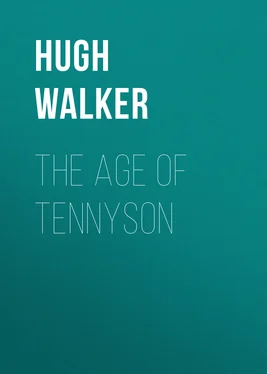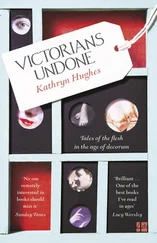Hugh Walker - The Age of Tennyson
Здесь есть возможность читать онлайн «Hugh Walker - The Age of Tennyson» — ознакомительный отрывок электронной книги совершенно бесплатно, а после прочтения отрывка купить полную версию. В некоторых случаях можно слушать аудио, скачать через торрент в формате fb2 и присутствует краткое содержание. Жанр: foreign_antique, Критика, literature_19, на английском языке. Описание произведения, (предисловие) а так же отзывы посетителей доступны на портале библиотеки ЛибКат.
- Название:The Age of Tennyson
- Автор:
- Жанр:
- Год:неизвестен
- ISBN:нет данных
- Рейтинг книги:5 / 5. Голосов: 1
-
Избранное:Добавить в избранное
- Отзывы:
-
Ваша оценка:
- 100
- 1
- 2
- 3
- 4
- 5
The Age of Tennyson: краткое содержание, описание и аннотация
Предлагаем к чтению аннотацию, описание, краткое содержание или предисловие (зависит от того, что написал сам автор книги «The Age of Tennyson»). Если вы не нашли необходимую информацию о книге — напишите в комментариях, мы постараемся отыскать её.
The Age of Tennyson — читать онлайн ознакомительный отрывок
Ниже представлен текст книги, разбитый по страницам. Система сохранения места последней прочитанной страницы, позволяет с удобством читать онлайн бесплатно книгу «The Age of Tennyson», без необходимости каждый раз заново искать на чём Вы остановились. Поставьте закладку, и сможете в любой момент перейти на страницу, на которой закончили чтение.
Интервал:
Закладка:
But spiritual regeneration could not supply the need of daily bread. Carlyle supported himself partly by the tutorship of private pupils, a form of teaching less distasteful to him than his school work had been. He was at the same time studying hard and reading widely, in French, Italian, Spanish, and afterwards in German, as well as in English, and was slowly gravitating towards the profession of literature. He contributed articles to Brewster’s Encyclopædia . Through Edward Irving, who had been for several years a generous friend, he was introduced to Taylor, the proprietor of the London Magazine , who published for him the Life of Schiller . About the same time the translation of Wilhelm Meister was issued through the agency of an Edinburgh publisher.
Carlyle’s marriage occurred in 1826, and he was for a short time happy. But there still remained difficulties of finance as well as difficulties of temper. Literary occupation did not prove either as easy to get or as remunerative as Carlyle had hoped. His German Romance was financially a failure, and publishers were on that account the less disposed to consider his books. He made unsuccessful attempts to find employment as a professor, first in the London University, and again at St. Andrews. He had lived since his marriage at Comely Bank, but had cherished more or less all the time the purpose of retiring to his wife’s farm of Craigenputtock, a solitary moorland place in Dumfriesshire. Moved probably by these disappointments, he carried out his purpose in 1828. ‘Hinaus ins freie Feld,’ to escape that necessity which ‘makes blue-stockings of women, magazine hacks of men,’—this had been the impulse which drove him thither. In less than four months it was ‘this Devil’s den, Craigenputtock.’ But ‘this Devil’s den’ was his home from 1828 to 1834, and, whatever doubts may be entertained as to the wisdom and kindness of Carlyle in taking his wife there, if we judge by the result, we must pronounce that he did what was best for his own literary development. It was during those years that Carlyle grew to his full intellectual stature. There and then were composed a great number of his essays; notably, among the literary class, the essay on Burns, written at the beginning of the Craigenputtock period, and, among the historical class, The Diamond Necklace , written near the end. There too was written that autobiography of ‘symbolical myth’ which, after being hawked in vain from one publisher to another, at last appeared piecemeal in Fraser’s Magazine . There too the French Revolution was, not indeed written, but planned and brooded over; and it was with a mind already full of the subject that Carlyle in 1834 made his migration to London, his home for the rest of his life. His character, moral and literary, was now formed; all the influences subsequently brought to bear upon it were of subordinate importance; and though in length of years the future period exceeded the period past, it may be briefly dismissed.
The History of the French Revolution , delayed though it was by the accidental burning of the manuscript of the first volume, was finished in January, 1837, and published shortly afterwards. It was the turning point in Carlyle’s literary life. Hitherto it had been a long, hard, almost fierce struggle; but the History at once established him as one of the foremost men of letters of his day. Success came none too soon. His resources were all but exhausted, and, like his countryman Burns, so close to him in some of the circumstances of his early life, he contemplated emigration to America. From this he was saved by the project, devised by Harriet Martineau, which produced his lectures on German literature. The popularity of the History reacted on his earlier works; publishers sought him instead of waiting to be approached; a proposal was made for republishing even Sartor ; and for the future Carlyle was sure, at any rate, of a competence. His next work of moment was Chartism (1839), written with a view to publication in the Quarterly Review . It was declined by Lockhart, but in such a way that the author and the editor retained for the future a strong mutual regard. In the year following Carlyle delivered the last of his courses of lectures, afterwards (1841) printed as Heroes and Hero-Worship . He was already deep in study for his Cromwell , and finding, as usual, great difficulty in beginning. Very different was his experience with Past and Present . This book, inspired by the same sense of social evils to which we owe Chartism , ‘was written off with singular ease in the first seven weeks of 1843.’ Cromwell was not finished till 1845. It was no sooner out than Carlyle began to think of Frederick ; but of all the long ‘valleys of the shadow’ of his literary life, that was the longest. Before it took shape there appeared his Latter-Day Pamphlets (1850), of which the celebrated paper on The Nigger Question was the precursor. The Life of Sterling (1851) is a strange contrast in tone and temper; for while the Pamphlets are among the most violent of Carlyle’s writings, the Life of Sterling is one of the calmest. It was not until after the publication of Sterling that he seriously took to Frederick the Great , which had hitherto been only a project floating in his mind with many others. He visited Germany to see the scenes with which he had to deal and to gather materials. The first and second volumes were published in 1858, and the third followed in 1862. In the interval Carlyle had visited Germany a second time. Frederick , finished in January, 1865, set the seal on Carlyle’s reputation as the head of the literature, at least the prose literature, of his time. It was also practically the end of his literary career. The world was ready to shower honours upon him. He was chosen Rector of the University of Edinburgh; but the triumph of his great inaugural speech was dashed almost immediately by the news of the sudden death of his wife. He wrote one or two minor articles, such as Shooting Niagara , and left the vivid and interesting, but frequently uncharitable, Reminiscences . With such exceptions, he lived henceforth, till his death on the 5th of February, 1881, the quiet, retired life of a man whose work was done.
This man, so long neglected, was during a considerable part of his life, and especially in the years between the publication of the Frederick the Great and his death, the greatest literary force in England. The reasons which ultimately secured for him this power are in part just the reasons which so long stood in the way of his advancement. He was eminently original in his matter, and perhaps even more in his style. But there is always some difficulty in appraising the value of originality; and the difficulty is all the greater when the originality is defiant and even borders on eccentricity. To a great extent Carlyle’s early struggles were necessary because no party, creed or faction could attach him to itself or claim him as its champion. Every party in turn found it possible to assent to his negations, yet each in turn had to disapprove of what he affirmed. In politics, how could such an explosive force work in harmony with orthodox Toryism? He was constantly ridiculing and denouncing a mere fox-hunting and partridge-shooting aristocracy. ‘Si monumentum quaeris, fimetum adspice.’ On the other hand, if the Radicals thought they had his sympathy, they soon found that the gulf between him and them was even wider, if possible, than that which separated him from their opponents. It was the disclosure of this gulf which led to the breach with their best man, and one of his best friends, Mill. They believed almost wholly in the machinery of government, and he believed in it not at all. They were economists, and he denounced economics as a mere pretended science. They believed in government by majorities, and he considered it ‘the most absurd superstition which had ever bewitched the human imagination—at least, outside Africa.’ Again, he would admit no accepted theological creed, and was consequently looked on askance by the accredited leaders of religion. Anything like superstition he abominated. Newman, he thought, had ‘not the intellect of a moderate-sized rabbit.’ On the other hand, he had no sympathy with the liberal party of the Church of England. He condemned the writers of Essays and Reviews . He respected Thirlwall, but wished him anywhere but where he was. ‘There goes Stanley,’ said he of a man whom he personally liked, ‘boring holes in the bottom of the Church of England.’ He thought Arnold of Rugby fortunate in being taken away before he was forced to choose between an honest abandonment of an untenable position and a trifling with his own conscience. He liked best the clergymen who could still honestly and literally and without misgiving accept the Prayer Book, but he did not respect their intellect. Again, if he did not like the ‘liberals’ within the Church, he liked still less the liberals outside it. However much he dissented from the champions of belief, he dissented still more from the apostles of unbelief. He had a faith, though not a creed. Separated thus from the orthodox by what he did not believe, and from the heterodox by what he believed, from one political party because he saw it would be fatal to remain inactive and leave ill alone, and from the other because he was convinced that movement in the direction they desired would be futile or worse, Carlyle stood alone. He had to create his own party, and the process was necessarily a slow one. But the very cause which made the work slow made it also great when it was accomplished.
Читать дальшеИнтервал:
Закладка:
Похожие книги на «The Age of Tennyson»
Представляем Вашему вниманию похожие книги на «The Age of Tennyson» списком для выбора. Мы отобрали схожую по названию и смыслу литературу в надежде предоставить читателям больше вариантов отыскать новые, интересные, ещё непрочитанные произведения.
Обсуждение, отзывы о книге «The Age of Tennyson» и просто собственные мнения читателей. Оставьте ваши комментарии, напишите, что Вы думаете о произведении, его смысле или главных героях. Укажите что конкретно понравилось, а что нет, и почему Вы так считаете.












